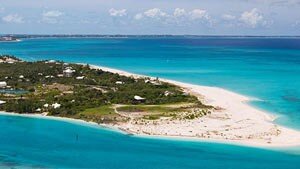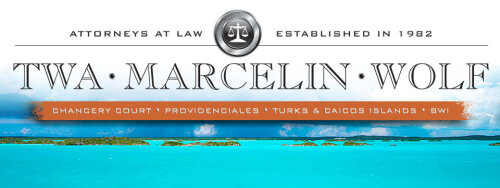Best Housing, Construction & Development Lawyers in Providenciales
Share your needs with us, get contacted by law firms.
Free. Takes 2 min.
Free Guide to Hiring a Real Estate Lawyer
List of the best lawyers in Providenciales, Turks and Caicos Islands
About Housing, Construction & Development Law in Providenciales, Turks and Caicos Islands
Housing, Construction, and Development law in Providenciales, Turks and Caicos Islands governs the rights, responsibilities, and procedures related to acquiring property, building homes or commercial structures, and developing land. Providenciales, commonly known as Provo, is the primary hub for real estate development in the Turks and Caicos Islands, attracting both local and international investors. The legal landscape in this area is shaped by local legislation, government policies, and best practices designed to ensure responsible development while protecting property rights, the environment, and the interests of all parties involved.
Why You May Need a Lawyer
There are several reasons why you might need legal assistance in housing, construction, or development projects in Providenciales:
- Buying or selling residential or commercial property
- Drafting or reviewing building contracts and development agreements
- Navigating planning application and approval processes
- Resolving property disputes or construction defects
- Ensuring compliance with zoning, environmental, and building regulations
- Securing title deeds, land registration, or transfer of ownership
- Handling issues related to strata developments or condominiums
- Dealing with government authorities or regulatory bodies
- Advising on foreign ownership, taxes, and financing requirements
- Litigating or mediating contract breaches or construction delays
Having a knowledgeable attorney can help you avoid costly mistakes, safeguard your investments, and ensure compliance with complex legal requirements.
Local Laws Overview
Housing, Construction, and Development in Providenciales are governed by a range of statutory laws and regulations, including:
- Registered Land Ordinance: Establishes land ownership and transfer procedures, ensuring security of tenure and clear property titles.
- Physical Planning Ordinance: Regulates land use, zoning, development permissions, and environmental impact assessments.
- Building Code Regulations: Sets standards for the design, construction, and safety of buildings, aligning with hurricane risk and tropical climate conditions.
- Condominium Ordinance: Governs the formation, management, and operation of strata properties and condominiums.
- Stamp Duty Ordinance: Imposes taxes on property transactions, which can affect buyers and sellers during conveyancing.
- Foreign Ownership Laws: Permits non-citizens and foreign entities to own land and property, but may require permits and compliance with specific rules.
Obtaining planning approval and building permits is mandatory for virtually all construction and development projects. Failure to comply with legal requirements can lead to fines, demolition orders, or loss of investment.
Frequently Asked Questions
Can non-residents purchase property in Providenciales?
Yes, non-residents and foreign entities can purchase property in Providenciales. However, there may be additional requirements, such as obtaining a landholding license for certain types of property or developments.
What steps are involved in buying property?
The process typically includes confirming land title, entering into a sale agreement, paying the necessary taxes and fees (such as stamp duty), and registering the property with the Land Registry. A lawyer can ensure due diligence and oversee the legal process.
Do I need planning permission for renovations or extensions?
Yes, most renovations, extensions, or new constructions require approval from the Physical Planning Department. Unauthorized work is subject to penalties or removal.
What types of taxes or fees apply to property transactions?
The main tax is stamp duty, calculated as a percentage of the purchase price. There may also be legal fees, registration fees, and costs associated with surveys or due diligence.
What should be included in a construction contract?
Key elements include scope of work, timelines, payment schedules, dispute resolution procedures, warranties, and details on quality standards. Legal advice is strongly recommended before signing any contract.
How do zoning laws affect development?
Zoning laws dictate land use (residential, commercial, mixed-use), allowable building sizes, setbacks, density, and permitted uses. Compliance is mandatory and non-conforming development may be prohibited or subject to enforcement action.
What can I do if a construction project is delayed or defective?
It is important to review the contract’s provisions on delays and defects. You may be entitled to remedies such as damages, specific performance, or termination. Disputes can often be resolved through negotiation, mediation, or litigation.
Are there special regulations for beachfront or environmentally sensitive property?
Yes, developments on the coast or in sensitive areas often require special environmental assessments, limitations on building size or style, and additional permissions to protect the environment and public access.
How can I resolve a dispute with a neighbor regarding property boundaries?
Disputes can often be resolved through negotiation or mediation. If this fails, legal action may be necessary. Accurate surveys and land registry documentation are essential in resolving such matters.
Can a lawyer assist in securing financing or mortgages for development?
Yes, lawyers can review loan agreements, ensure compliance with local laws, and assist in registering mortgages or encumbrances against properties.
Additional Resources
If you need further information or assistance, consider reaching out to these local resources:
- Physical Planning Department: Oversees planning applications, zoning, and development permissions
- Land Registry Department: Responsible for registering property ownership, transfers, and searches
- Turks and Caicos Islands Government (TCIG): Publishes laws, regulations, and guidance on property and construction
- Bar Association of the Turks and Caicos Islands: Directory of qualified local lawyers
- Turks and Caicos Real Estate Association (TCREA): Offers information and guidance on real estate transactions
Next Steps
If you require legal assistance related to housing, construction, or development in Providenciales:
- Document your situation, gather relevant contracts, correspondence, or approvals
- Identify the specific issue or outcome you are seeking
- Contact a lawyer who specializes in real estate, construction, or property law in the Turks and Caicos Islands
- Schedule an initial consultation to discuss your matter in detail
- Follow your lawyer’s advice regarding further steps, legal filings, or negotiations with other parties or government agencies
Prompt legal advice is crucial to protect your investment and ensure a smooth property transaction or development project in Providenciales.
Lawzana helps you find the best lawyers and law firms in Providenciales through a curated and pre-screened list of qualified legal professionals. Our platform offers rankings and detailed profiles of attorneys and law firms, allowing you to compare based on practice areas, including Housing, Construction & Development, experience, and client feedback.
Each profile includes a description of the firm's areas of practice, client reviews, team members and partners, year of establishment, spoken languages, office locations, contact information, social media presence, and any published articles or resources. Most firms on our platform speak English and are experienced in both local and international legal matters.
Get a quote from top-rated law firms in Providenciales, Turks and Caicos Islands — quickly, securely, and without unnecessary hassle.
Disclaimer:
The information provided on this page is for general informational purposes only and does not constitute legal advice. While we strive to ensure the accuracy and relevance of the content, legal information may change over time, and interpretations of the law can vary. You should always consult with a qualified legal professional for advice specific to your situation.
We disclaim all liability for actions taken or not taken based on the content of this page. If you believe any information is incorrect or outdated, please contact us, and we will review and update it where appropriate.










